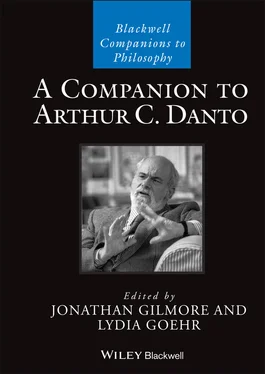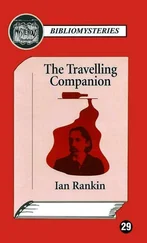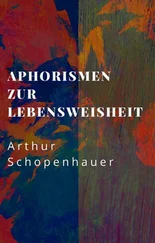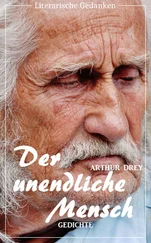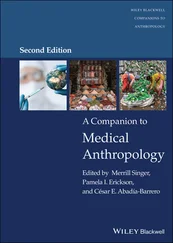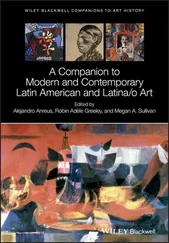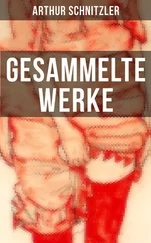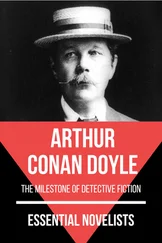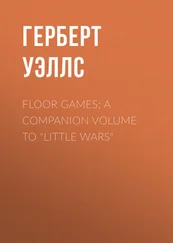A Companion to Arthur C. Danto
Здесь есть возможность читать онлайн «A Companion to Arthur C. Danto» — ознакомительный отрывок электронной книги совершенно бесплатно, а после прочтения отрывка купить полную версию. В некоторых случаях можно слушать аудио, скачать через торрент в формате fb2 и присутствует краткое содержание. Жанр: unrecognised, на английском языке. Описание произведения, (предисловие) а так же отзывы посетителей доступны на портале библиотеки ЛибКат.
- Название:A Companion to Arthur C. Danto
- Автор:
- Жанр:
- Год:неизвестен
- ISBN:нет данных
- Рейтинг книги:5 / 5. Голосов: 1
-
Избранное:Добавить в избранное
- Отзывы:
-
Ваша оценка:
- 100
- 1
- 2
- 3
- 4
- 5
A Companion to Arthur C. Danto: краткое содержание, описание и аннотация
Предлагаем к чтению аннотацию, описание, краткое содержание или предисловие (зависит от того, что написал сам автор книги «A Companion to Arthur C. Danto»). Если вы не нашли необходимую информацию о книге — напишите в комментариях, мы постараемся отыскать её.
Companion
A Companion to Arthur C. Danto
A Companion to Arthur C. Danto — читать онлайн ознакомительный отрывок
Ниже представлен текст книги, разбитый по страницам. Система сохранения места последней прочитанной страницы, позволяет с удобством читать онлайн бесплатно книгу «A Companion to Arthur C. Danto», без необходимости каждый раз заново искать на чём Вы остановились. Поставьте закладку, и сможете в любой момент перейти на страницу, на которой закончили чтение.
Интервал:
Закладка:
What, with all of this said, might future intellectual historians make of the temperamental divide in the life of this philosophical odd couple? So far, it seems a wide divide indeed. But Danto’s dialectical distance from Dewey on the landscape of recent philosophy may well turn out, in the fullness of doxographic time, to be narrower than now appears. Let me explain.
We saw that Danto early on cast his relationship to Deweyan pragmatism in terms of an internalist/externalist dialectic. He regarded this dialectic as separating his own methods decisively not only from Dewey but from pragmatism generally, and especially from neopragmatists like Rorty and others who had come, by the Cold War years, to perceive the more ideological forms of analytic philosophy as intellectually and socially repressive. But in the Preface to the second (1997) edition of Connections, Danto also takes a new stab at describing what he saw as the essential methodological tension in contemporary professional philosophy. This time his candidate is not, as in Connections ’ original 1989 text, internalism-versus-externalism; it is now atomism-versus-holism. (These, again, are the two stances he had attributed to himself and Dewey, respectively, in the interview I quoted at the beginning.) Rorty himself, tellingly, had invoked the same two stances in his own account of Anglophone philosophy’s central fault line in 2007 (Rorty 2007). “The atomists,” Danto notes, “for the moment are on the run.” Clearly, this is at least an allusion to the anti-Analytic rebellions mentioned above. The remark also seems to gesture toward the sweeping late-twentieth century turn toward holistic “complexity” within the human and natural sciences.
Might Danto also have been channeling the retreating atomist in himself ? For here, he hints for the first time at the possibility of a “third kind of system” whose elaboration would inform the agenda for a possible sequel (never published) to Connections . Such a philosophy would not (unlike, he says, most modern philosophy) model itself on the natural sciences but would instead freshly address “what defines us as human beings, or as ens representans ” (Danto 1997, xix). He adds that this “is not a model, clearly, which philosophers have greatly understood.” Such a third model would interweave Connections ’ closing Hegelian theme that we are social, self-interpreting spiritual beings with a less atomistically reductive version of the idea, central to the post-positivist analytical culture of Danto’s early career, that we are also natural beings.
Coincidentally (or not, if you are a certain kind of Hegelian), this is an accurate brief, as far as it goes, for the arguments of books like Robert Brandom’s Making It Explicit: Reasoning, Representing, and Discursive Commitment and Terry Pinkard’s Hegel’s Naturalism . These studies appeared toward the end of Danto’s career and helped prompt certain dialectical shifts in conceptions of human rational activity that had previously both defined and separated the two Anglophone traditions of analytic philosophy and pragmatism. Even though Danto never substantially discussed that literature, his remarks in Connections suggest a shift in his own later thinking paralleling a larger sea change within mainstream analytic philosophy at the turn of the millennium. If analytic philosophizing embodies, as Danto himself evidently thought, something like Hegel’s phenomenology of spirit, it is not a stretch to suppose that the latter’s recent movement ran, in the end, through Danto’s work as well.
This, if so, also suggests a shifting picture of Danto’s doxographic relationship to Dewey. To that extent, there is a sense in which Danto both never walked back his lifelong aversion to pragmatism and , to recall his remark with which I opened, never fully escaped Dewey’s influence. This seems especially true if we view Dewey as one of many thinkers who laid the groundwork for recent accounts of Hegel’s relationship to pragmatism and naturalism. Analytic philosophy’s phenomenological development here also puts the lie to earlier beliefs in its separation, as a “critical” enterprise, from other more “speculative” enterprises such as pragmatism. Expressions like “pragmatism” and “analytic philosophy” indeed don’t denote neatly compartmentalized natural or transcendental kinds. They denote cultural kinds (although for an emergent naturalist like Dewey, all cultural kinds are ultimately natural kinds, and vice versa). So understood, their history is as much one of emerging hybridizations, syntheses, and “third models” as it is one of lower-order clashes between what may initially appear to a given generation – as Dewey’s externalism and Danto’s internalism initially appeared to Danto – as incommensurable perspectives among which we can make only non-cognitive choices.
Intellectual prophecies are notoriously unreliable. But my guess is that the above-described phenomenological movement in Anglophone philosophy will certainly continue to bear out Danto’s intimation of a “third model” – a development that Dewey, as even the older neoHegelian Danto never acknowledged, already substantially pioneered decades earlier. This movement also promises to encompass more radically transdisciplinary developments within this century’s intellectual networks that are receiving the attention of many older-school philosophers only now.
Such observations begin to take the story of what Danto’s critique of Dewey and Dewey’s reconstructed critique of Danto mean beyond what either envisaged. Their disagreements were, as we have seen, deep and many. But dialectical encounters—even hypothetical ones like mine here—can sometimes also bring new pieces of common ground into focus. Danto ultimately turned out to share the spirit if not the letter of Dewey’s thought that the full meaning of any action, conversation, or practice lies as much in how it shapes the future as in its roots in the past and present. That thought paves the way, dialectically, for another which increasingly frames the work of, among many others, Hegelians, pragmatists, and analytic philosophers in this century. This is that our always-unfinished contributions to the future ensure that no one will get the last word about our connections to the world, even if nothing in the world could ever matter more to philosophers than getting those connections right.
Notes
1 1 For a sense of the multidisciplinary breadth of recent interest in Dewey, see Fesmire (2019).
2 2 On the idea of an “analytic ideology,” see Bernstein (2010) and Rorty (1992).
3 3 Giovanna Borradori, ed., The American Philosopher: Conversations with Quine, Davidson, Putnam, Nozick, Danto, Rorty, Cavell, Macintyre, Kuhn (University of Chicago Press, 1994), 98-.
4 4 I further discuss how Dewey’s approach to understanding art and aesthetic experience differs from those of philosophers (including Danto) who retained certain key transcendental and representationalist commitments of traditional empiricist and Kantian-idealist aesthetics in Haskins (2019).
References
1 Bernstein, Richard J. 2010. The Pragmatic Turn. Cambridge: Polity Press.
2 Borradori, Giovanna. 1994. The American Philosopher: Conversations with Quine, Davidson, Putnam, Nozick, Danto, Rorty, Cavell, Macintyre, Kuhn. Chicago: University of Chicago Press.
3 Danto, Arthur C. 2013. “Intellectual Autobiography of Arthur C. Danto”, in Randall E. Auxier and Lewis Edwin Hahn, eds., 2013. The Philosophy of Arthur C. Danto. Chicago and LaSalle, IL: Open Court: 3–70.
4 ––––. 1968. Analytical Philosophy of Knowledge. Cambridge: Cambridge University Press.
Читать дальшеИнтервал:
Закладка:
Похожие книги на «A Companion to Arthur C. Danto»
Представляем Вашему вниманию похожие книги на «A Companion to Arthur C. Danto» списком для выбора. Мы отобрали схожую по названию и смыслу литературу в надежде предоставить читателям больше вариантов отыскать новые, интересные, ещё непрочитанные произведения.
Обсуждение, отзывы о книге «A Companion to Arthur C. Danto» и просто собственные мнения читателей. Оставьте ваши комментарии, напишите, что Вы думаете о произведении, его смысле или главных героях. Укажите что конкретно понравилось, а что нет, и почему Вы так считаете.
